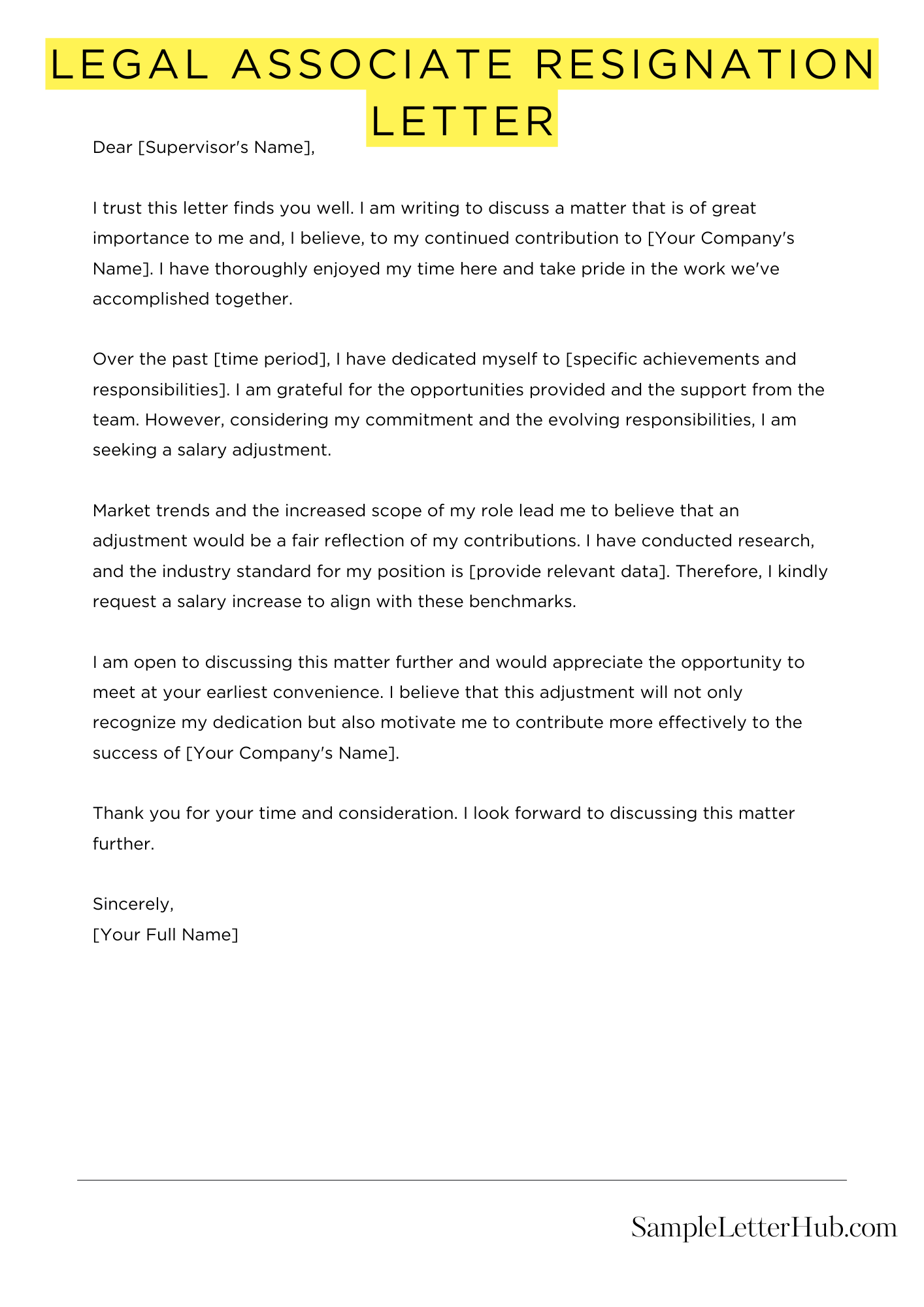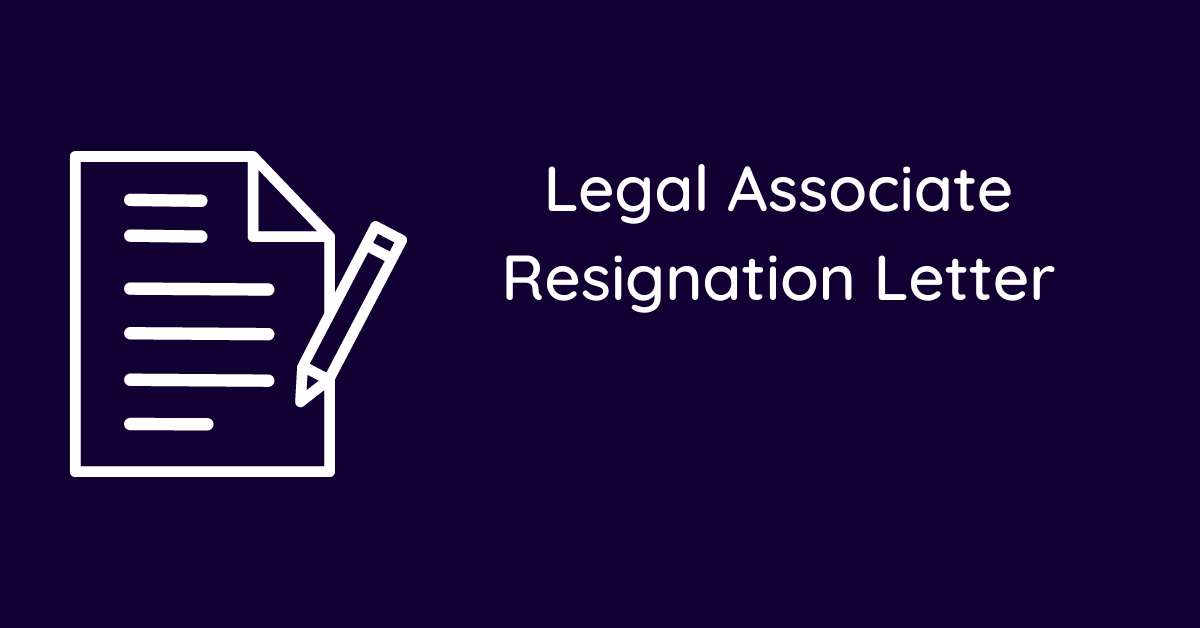When it comes to leaving your legal associate position, a well-crafted resignation letter is key. In this article, we’ll share an example of a legal associate resignation letter to help you navigate this transition smoothly.
Remember, a resignation letter is not just a formality. It’s an opportunity to express your gratitude and leave a positive impression. Be polite, humble, and professional in your tone. Keep it concise and to the point, while still conveying your appreciation for the opportunity.
Below, you’ll find a template for a legal associate resignation letter that you can tailor to your specific situation. Use it as a starting point to create a letter that reflects your unique experience and aspirations.
Legal Associate Resignation Letter
Dear [Supervising Attorney’s Name],
Please accept this letter as formal notification that I will be resigning from my position as a Legal Associate with [Law Firm Name], effective two weeks from today, [Last Date of Employment].
I have enjoyed my time at the firm and am grateful for the opportunities I have been given. I have learned a great deal and have developed valuable skills that I will carry with me in my future endeavors.
I wish you and the firm all the best in the future.
Sincerely,
[Your Signature]
Short Legal Associate Resignation Letter Sample
Please accept this letter as formal notification that I am resigning from my position as Legal Associate at [Company Name]. My last day of employment will be [Your Last Day]. Thank you for the opportunity to grow and learn during my time here. I wish you and the company continued success. I am happy to assist in the transition process to ensure a smooth handover of my responsibilities.
I wish you all the best with your legal associate resignation letter.
When it’s time to say farewell, expressing your gratitude and best wishes can make the transition smoother:

How to Write a Legal Associate Resignation Letter
1. Start with a Formal Salutation
Begin your letter with a formal salutation, such as “Dear [Supervising Attorney’s Name].”
2. State Your Intention to Resign
Clearly state your intention to resign from your position as a legal associate. Include the date your resignation will be effective.
3. Express Gratitude and Appreciation
Take this opportunity to express your gratitude for the opportunity to work at the firm. Mention specific experiences or individuals that have made your time there valuable.
4. Offer Assistance with the Transition
Let your supervisor know that you are willing to assist with the transition during your notice period. Offer to train your replacement or help with any unfinished projects.
5. End with a Professional Closing
End your letter with a professional closing, such as “Sincerely,” followed by your typed name.
Legal Associate Resignation Letter: 6 FAQs Answered
Resigning from a legal associate position can be a daunting task, but it’s important to do it professionally and respectfully. Here are six frequently asked questions and answers to help you navigate the process:
1. What should I include in my resignation letter?
Your resignation letter should include the following:
* Your name and contact information
* The date
* The name of the person you’re resigning to
* A statement of your resignation
* Your last date of employment
* A brief expression of gratitude
2. How should I format my resignation letter?
Your resignation letter should be formatted in a professional and easy-to-read manner. Use a standard font, such as Times New Roman or Arial, and keep the letter to one page.
3. What should I do after I submit my resignation letter?
After you submit your resignation letter, you should meet with your supervisor to discuss the transition. Be prepared to answer questions about your reasons for leaving and offer to help with the handover process.
4. What if I’m asked to stay?
If you’re asked to stay, it’s important to be honest about your reasons for leaving. If you’re not sure what you want to do next, you can ask for some time to think it over.
5. What if I’m given a counteroffer?
If you’re given a counteroffer, it’s important to weigh the pros and cons carefully. Consider your reasons for leaving and whether the counteroffer addresses them.
6. What if I’m leaving on bad terms?
If you’re leaving on bad terms, it’s still important to be professional. Keep your resignation letter brief and to the point, and avoid making any negative comments.
Before making the decision to resign from your job, it’s essential to consider the legal aspects:
Understanding your emotions after quitting your job is important. Explore why you might be feeling sad:
Related
- Resignation letter sample
- Forced resignation letter
- Resignation letter due to going abroad
- Resignation letter due to marriage
- Resignation letter due to other opportunity
- Resignation letter due to mistake

